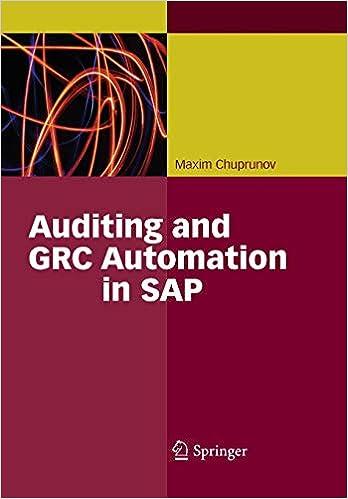Question
Comparative financial statements for Heritage Antiquing Services for the fiscal year ending December 31 appear below. The company did not issue any new common or
|
|
| Heritage Antiquing Services Comparative Balance Sheet (dollars in thousands) | ||||||
| This Year | Last Year | |||||
| Assets | ||||||
| Current assets: | ||||||
| Cash | $ | 1,110 | $ | 1,290 | ||
| Accounts receivable, net | 9,500 | 6,800 | ||||
| Inventory | 12,400 | 11,800 | ||||
| Prepaid expenses | 790 | 510 | ||||
| Total current assets | 23,800 | 20,400 | ||||
| Property and equipment: | ||||||
| Land | 10,600 | 10,600 | ||||
| Buildings and equipment, net | 51,757 | 42,678 | ||||
| Total property and equipment | 62,357 | 53,278 | ||||
| Total assets | $ | 86,157 | $ | 73,678 | ||
| Liabilities and Stockholders' Equity | ||||||
| Current liabilities: | ||||||
| Accounts payable | $ | 20,200 | $ | 18,900 | ||
| Accrued payables | 990 | 760 | ||||
| Notes payable, short term | 240 | 240 | ||||
| Total current liabilities | 21,430 | 19,900 | ||||
| Long-term liabilities: | ||||||
| Bonds payable | 9,700 | 9,700 | ||||
| Total liabilities | 31,130 | 29,600 | ||||
| Stockholders' equity: | ||||||
| Preferred stock | 1,000 | 1,000 | ||||
| Common stock | 600 | 600 | ||||
| Additional paid-in capital | 4,000 | 4,000 | ||||
| Total paid-in capital | 5,600 | 5,600 | ||||
| Retained earnings | 49,427 | 38,478 | ||||
| Total stockholders' equity | 55,027 | 44,078 | ||||
| Total liabilities and stockholders' equity | $ | 86,157 | $ | 73,678 | ||
| Heritage Antiquing Services Comparative Income Statement and Reconciliation (dollars in thousands) | ||||||
| This Year | Last Year | |||||
| Sales | $ | 75,795 | $ | 64,000 | ||
| Cost of goods sold | 37,510 | 32,000 | ||||
| Gross margin | 38,285 | 32,000 | ||||
| Selling and administrative expenses: | ||||||
| Selling expenses | 11,100 | 11,000 | ||||
| Administrative expenses | 6,900 | 6,400 | ||||
| Total selling and administrative expenses | 18,000 | 17,400 | ||||
| Net operating income | 20,285 | 14,600 | ||||
| Interest expense | 970 | 970 | ||||
| Net income before taxes | 19,315 | 13,630 | ||||
| Income taxes | 7,726 | 5,452 | ||||
| Net income | 11,589 | 8,178 | ||||
| Dividends to preferred stockholders | 40 | 340 | ||||
| Net income remaining for common stockholders | 11,549 | 7,838 | ||||
| Dividends to common stockholders | 600 | 600 | ||||
| Net income added to retained earnings | 10,949 | 7,238 | ||||
| Retained earnings, beginning of year | 38,478 | 31,240 | ||||
| Retained earnings, end of year | $ | 49,427 | $ | 38,478 | ||
| Required: | |
| Compute the following financial data for short-term creditors for this year: |
| 1. | Working capital. (Enter your answer in thousands of dollars.) |
| Working capital | $ |
| 2. | Current ratio. (Round your answer to 2 decimal places.) |
| Current ratio |
| 3. | Acid-test ratio. (Round your answer to 2 decimal places.) |
| Acid-test ratio |
| 4. | Accounts receivable turnover. (Round your answer to 1 decimal place.) |
| Accounts receivable turnover |
| 5. | Average collection period. (Use 365 days in a year. Round your intermediate calculations and final answer to 1 decimal place.) |
| Average collection period | days |
| 6. | Inventory turnover. (Round your answer to 1 decimal place.) |
| Inventory turnover |
| 7. | Average sale period. (Use 365 days in a year. Round your intermediate calculations and final answer to 1 decimal place.) |
| Average sale period | days |
Step by Step Solution
There are 3 Steps involved in it
Step: 1

Get Instant Access to Expert-Tailored Solutions
See step-by-step solutions with expert insights and AI powered tools for academic success
Step: 2

Step: 3

Ace Your Homework with AI
Get the answers you need in no time with our AI-driven, step-by-step assistance
Get Started


 Comparative financial statements for Heritage Antiquing Services for the fiscal year ending December 31 appear below. The company did not issue any new common or preferred stock during the year. A total of 600 thousand shares of common stock were outstanding. The interest rate on the bond payable was 10%, the income tax rate was 40%, and the dividend per share of common stock was $1.00. The market value of the companys common stock at the end of the year was $28. All of the companys sales are on account.
Comparative financial statements for Heritage Antiquing Services for the fiscal year ending December 31 appear below. The company did not issue any new common or preferred stock during the year. A total of 600 thousand shares of common stock were outstanding. The interest rate on the bond payable was 10%, the income tax rate was 40%, and the dividend per share of common stock was $1.00. The market value of the companys common stock at the end of the year was $28. All of the companys sales are on account.